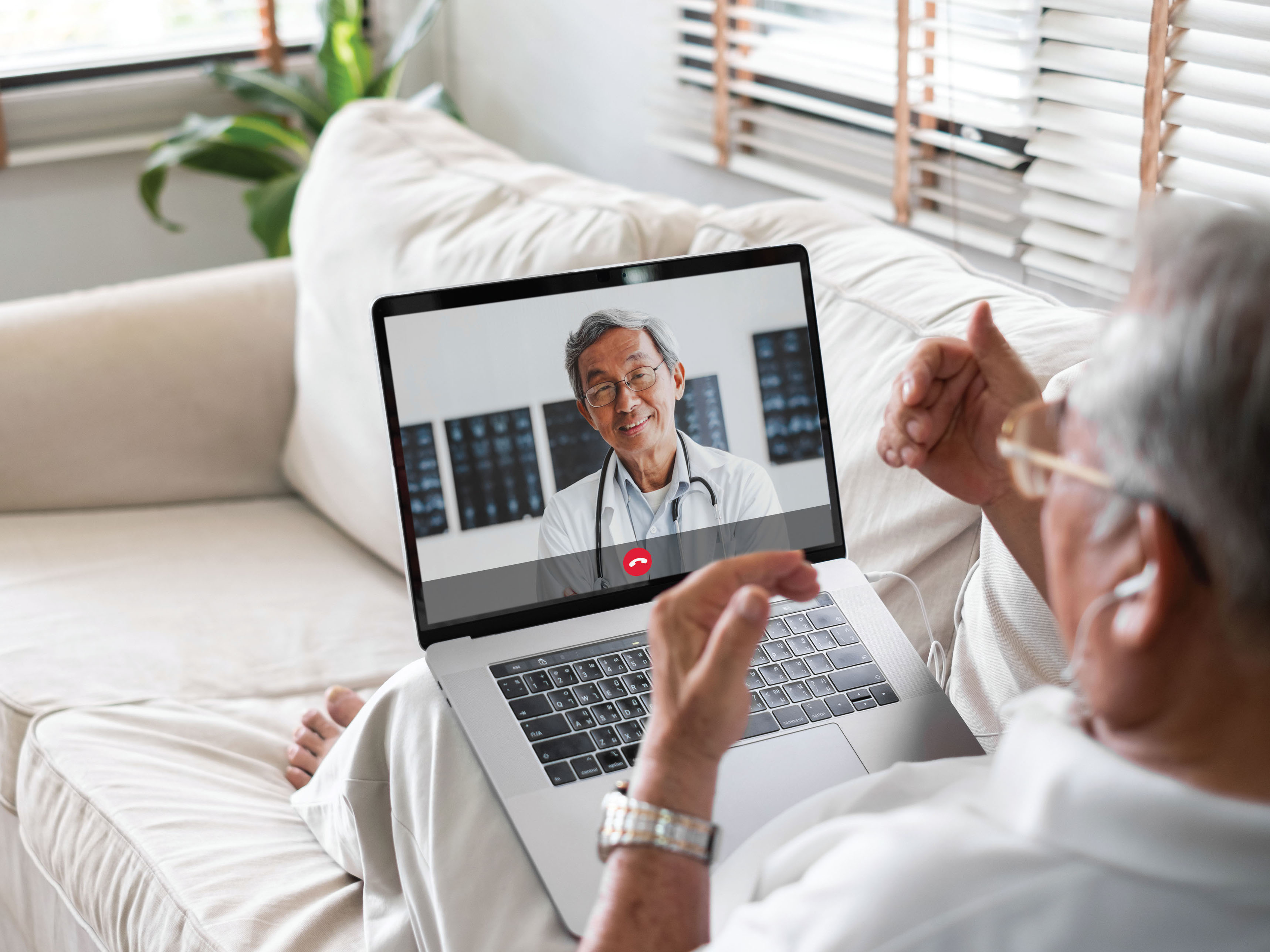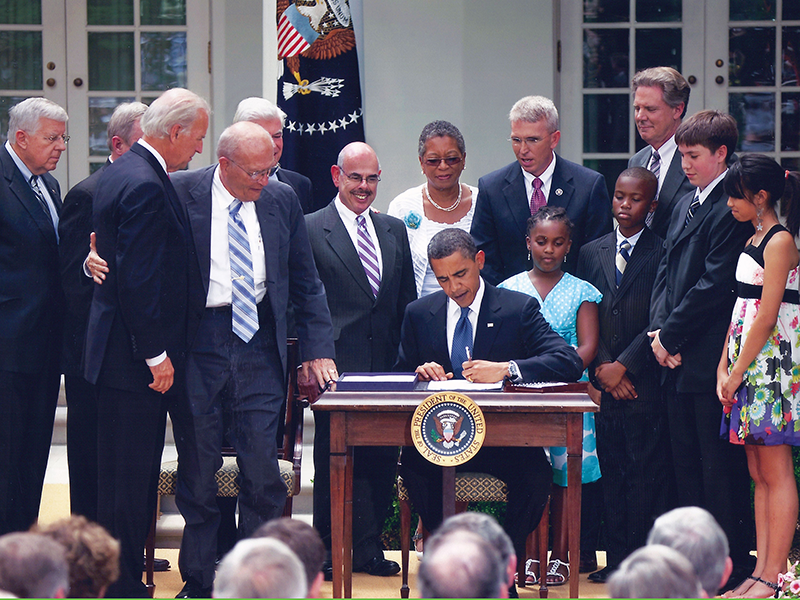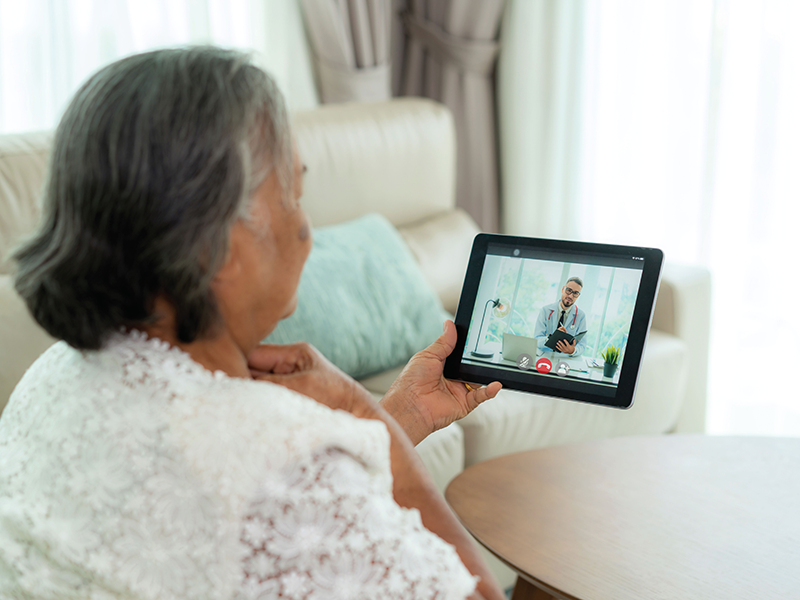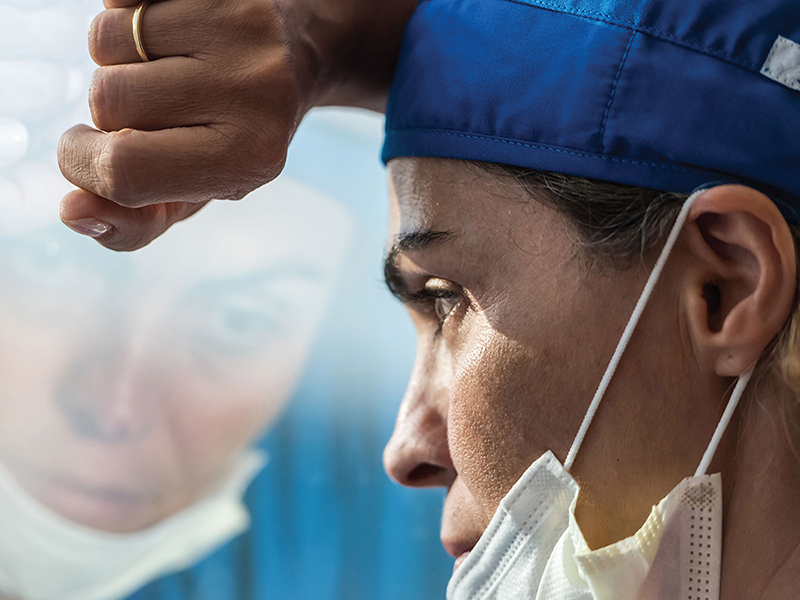Oncology Nurses Share Successes and Challenges Adapting to Telehealth During COVID-19

The COVID-19 coronavirus pandemic has forced healthcare providers to make unprecedented adjustments to patient care, including the pivot to telehealth. At a series of virtual events from October 2020–March 2021, ONS members shared their challenges, successes, and future needs to permanently adopt virtual cancer care visits.
- Read more about Oncology Nurses Share Successes and Challenges Adapting to Telehealth During COVID-19
- Add new comment
Up in Smoke: Tobacco Legislation Policy Dynamics Are Changing

Before clinical trials proved otherwise, physicians hailed cigarettes’ therapeutic benefits in black-and-white television commercials and old-time newspaper ads, such as easing tension and enhancing cognition. But as a popular cigarette slogan from the 1970s suggests, we’ve “come a long way, baby!” In the 1950s, researchers began publishing study findings implicating smoking as a cause of lung cancer. Today, the evidence is conclusive: nicotine is addictive and damaging to a person’s health.
Telehealth Has Value During Radiotherapy, Patients Say

More than 90% of patients report that telehealth consultations during radiotherapy treatment are high quality and may be even better for understanding information from their healthcare team than in-person visits, researchers reported in the Journal of the National Comprehensive Cancer Network.
The Case of the Clinical Trials Consultation

Don, age 72, was diagnosed with borderline resectable pancreatic adenocarcinoma more than a year ago. Genetic testing indicated a BRCA2 variant. He completed 12 cycles of FOLFIRINOX followed by a pancreaticoduodenectomy (Whipple procedure). He had no evidence of disease for six months until a liver lesion seen on surveillance imaging tested positive for metastatic pancreatic cancer. His medical oncologist suggests a clinical trial targeting the BRCA2 variant.
Biden-Harris Administration Provides Nearly $1 Billion to Modernize Health Centers, Support Underserved Communities

An investment of nearly $1 billion will help modernize 1,292 Health Resources and Services Administration (HRSA) health center program-funded health centers across the United States, according to an October 2021 announcement from the U.S. Department of Health and Human Services (HHS). The funding will be used to support major healthcare construction and renovation projects and strengthen the country’s healthcare infrastructure.
- Read more about Biden-Harris Administration Provides Nearly $1 Billion to Modernize Health Centers, Support Underserved Communities
- Add new comment
How Nurses Can Monitor and Strengthen Their Mental Health

As nurses, the inclination to nurture and care for others is in our nature, yet sometimes we forget to care for ourselves. That’s an easy routine to fall into, but optimizing our mental well-being improves both the quality of care we provide and our overall health. So today, right now, is all about you. Here are four simple, sustainable ways you can safeguard your mental health, which includes your emotional, psychological, and social well-being, amid the ever-present chaos.
HHS Secretary Becerra Announces New Overdose Prevention Strategy

Preventing overdoses—from any substance, but particularly opioids—is an urgent need during the U.S. opioid epidemic that involves a four-step process: prevention, harm reduction, treatment, and recovery, U.S. Department of Health and Human Services (HHS) Secretary Xavier Becerra announced. HHS released a new overdose prevention strategy in October 2021 to increase access to services for patients and their families who use substances that can put them at risk for overdose.
FDA Approves Abatacept for Prophylaxis of Acute Graft-Versus-Host Disease

On December 15, 2021, the U.S. Food and Drug Administration (FDA) approved abatacept (Orencia®) for prophylaxis of acute graft-versus-host disease (aGVHD), in combination with a calcineurin inhibitor (CNI) and methotrexate (MTX), in adults and pediatric patients aged 2 and older who are undergoing hematopoietic stem cell transplantation (HSCT) from a matched or one allele-mismatched unrelated donor.
- Read more about FDA Approves Abatacept for Prophylaxis of Acute Graft-Versus-Host Disease
- Add new comment
Help Patients Understand Biomarker Test Results and Clinical Trials Options

Many of today’s new drug approvals and standard-of-care treatments have a companion diagnostic test that identifies biomarkers in a patient’s tumor tissue or blood to determine whether they are an appropriate candidate for the therapy. When those results show that they’re not a good match for the U.S. Food and Drug Administration (FDA)-approved treatment, the findings may identify a biomarker-directed clinical trial as an alternative option. Here’s how oncology nurses can help patients understand which clinical trials listed on their test results might be an option for them.
- Read more about Help Patients Understand Biomarker Test Results and Clinical Trials Options
- Add new comment
Katrina Goddard Appointed as Division of Cancer Control and Population Sciences Director

Katrina A.B. Goddard, PhD, a genetic epidemiologist who worked on 25 federally funded research studies, is the director of the Division of Cancer Control and Population Sciences (DCCPS) as of October 2021, where she oversees a range of cancer-related research.





